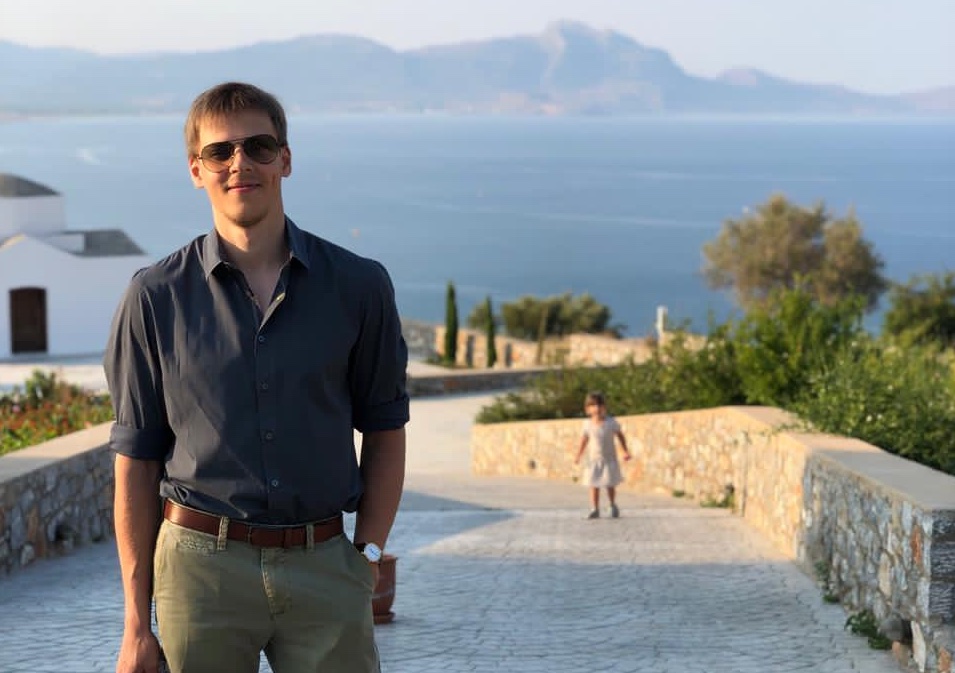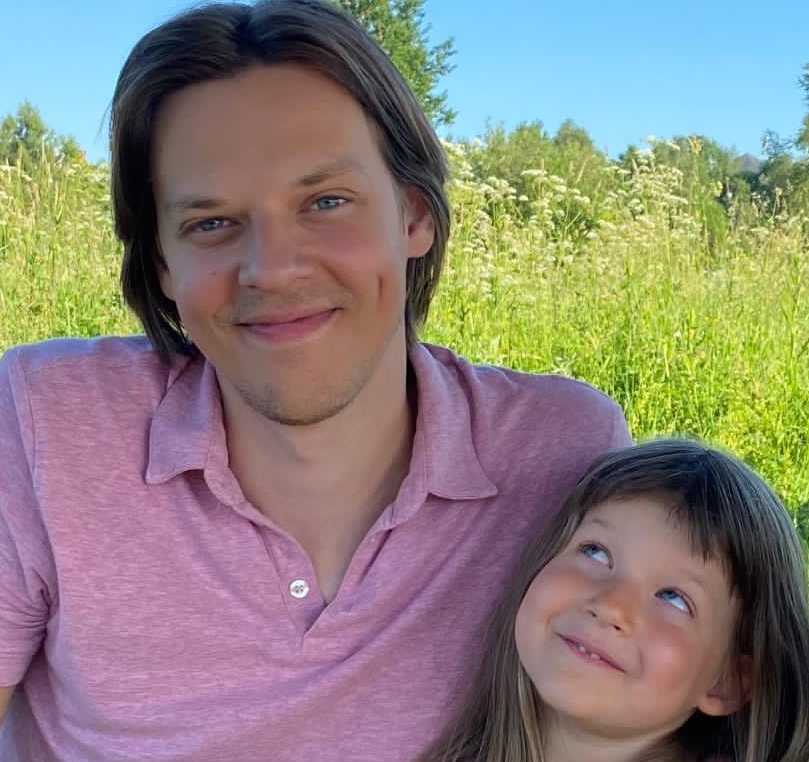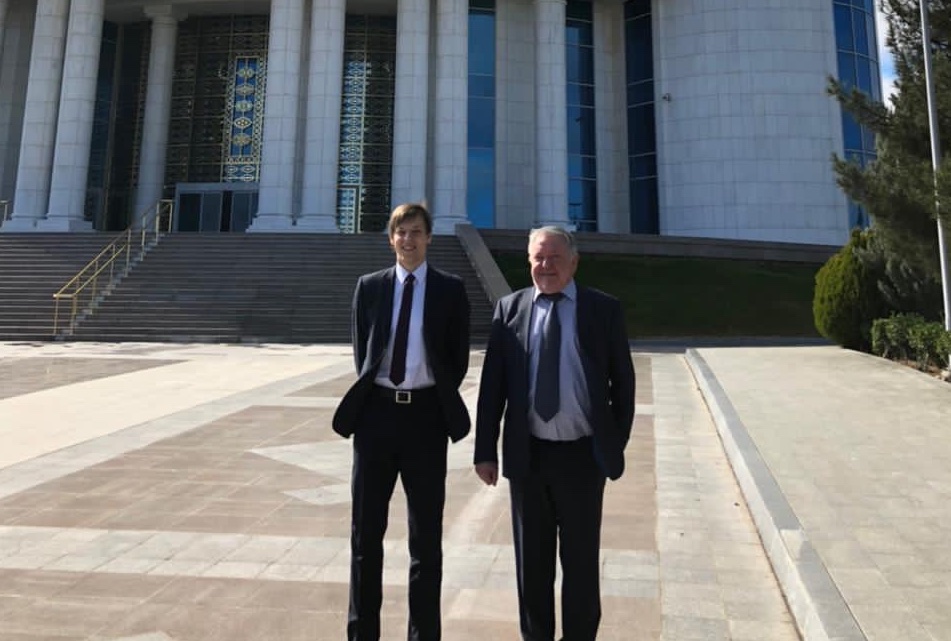Vaccine as a profession: ICEF graduate about his career at Sanofi Pasteur

Nikolay Kuzin earned his bachelor's from ICEF in 2011 and is currently a brand manager for new products (Eastern Europe) at Sanofi Pasteur (France). Sanofi Pasteur has a proven track record in producing vaccines. In this interview, Nikolay shares how his financial background helps him in his role as a manager, how French master’s programmes differ from their counterparts in other countries, how long it takes to develop a vaccine, and why Europeans trust medical developments in their countries.
Switching from one programme to another
It was my greatest wish to study at HSE. It was 2007. HSE had built itself a brilliant reputation and was highly spoken of by its students. I had friends who studied at HSE ICEF. But back then, I did not think finance suited me as a career, so I ignored the advice from my friends and chose to enroll in Business Informatics programme.
At a closer look at the academic opportunities, curricula and career paths of HSE graduates, I discovered the double-degree programme at ICEF and decided it was a highly promising option. With many quantitative courses, it was a perfect match to my technical background and programming skills. I immediately switched to ICEF and applied its programme, thinking about all the benefits I could use as a student of HSE and the University of London to grow in fintech.
Surviving the first two years
One of the major challenges I faced was English as the language of instruction. As an enrollee with general knowledge of English I was put on an intensive course to catch up with classmates. Another thing I found puzzling at first was learning design. When you move from school to university, you still have this expectation that there will be the usual four terms, the usual grading scale, and that things will be decided for you as usual. Instead, you find yourself in an environment expecting you to hold yourself accountable and to realize the quality of your learning outcomes depends on nothing but your will to learn.

It took me quite some time to get used to having to spend a lot of time studying and getting the exam results I least expected. Years one and two did turn out difficult. They made me reconsider my approach: I learned I should at all times be able to cope with a multitude of tasks, develop skills I didn’t have before and take responsibility. This would be the case with any bachelor’s degree. The ultimate goal is to make leaners capable of sourcing, internalizing and acting upon new knowledge. Many students have only a vague understanding of what knowledge they will actually need for their future jobs.
Planning life after graduation
After three years of studying, I still did not know what line of work I wanted to pursue. It was my mistake to neglect career events – meetings with the industries, alumni relations, traineeship opportunities – that ICEF Career Services have a diverse agenda of. My goal was to earn two excellent degrees to get me abroad and give me a more global understanding of the market.
Your classmates at ICEF can be a helpful source of knowledge about the industries. Those with experience of working for a company usually provide very honest feedback. I finally realized consulting and IB weren’t for me. I seemed to be more into management. I started looking for a master’s programme that would fit my needs. It had to be either British or French. The former was obviously a matter of prestige, while the latter came with opportunity to improve my French, which I studied earlier, giving two years for unhasty, in-depth studies and no pressure of job offer chase, as is the case in London where master’s programmes have a duration of one year.
France seemed more laid back and close to my heart in many ways. The first year offers intensive studies, and in the second one it is possible to start a job and use work-related projects as the basis for your master’s thesis. French universities are known for their strong career support. The French programme sounded more promising: it seemed to relieve the feeling of uncertainly about the future. This is how I chose Lyon and the management programme at Emlyon Business School.
Why studying abroad proved easy
At European universities, the first-year curriculum has core courses such as macroeconomics and microeconomics that will be covered effortlessly and with excellent grades by anyone with academic training from ICEF. I devoted my first year mostly to the advanced study of the French language. In the second term, students are free to adjust their learning tracks by choosing the courses they take interest in. I major in Banking and Finance and I was able to earn an additional, narrow specialization in Lyon by completing a certain range of courses, one example being the master’s degree in risk management.

I really liked this freedom of choice and the opportunity to focus on precisely what I took interest in. What made things even more exciting were the students with experience in different companies. I took advantage of communicating with them to find out what they thought, get their advice and feedback about their employers. They were a great source of professional knowledge for me, and they helped me to grope way towards my own career path.
Why IB may not be for everyone
In the second year of my master’s studies, I started working as a Coverage Analyst at Société Générale CIB largest open office in Europe for 2,500 employees. My job dealt with financial markets and involved close contact with sales people and traders. Ephemeral as it seemed to me, with elusive value of results, that industry was a poor match to my expectations, to be honest. It judges your performance by looking at the changes in the fluctuating customer portfolio, meaning that the ultimate result may not always be a product of the quality of your performance. Besides, working in IB involves severe exposure to stress.
I wanted something different, with more substantive communication with clients and more time for decision making. I decided to try an industry that would be as real as possible and with tangible values, such as healthcare and pharmaceutical industry. The offer came from Sanofi Pasteur.
Getting a job in France
As in London, the first thing major companies in France look at is your education. The diplomas earned at ICEF indicate their holders’ proficiency in English. Plus, my French language skills had improved greatly during my two years of study, while my Russian proved to be an asset that earned me my primary specialization – the markets of Eastern Europe and Central Asia.
Together with academic training, language skills form a perfect skill set that will get you a job on the European labour market
I came across the vacancy at Sanofi Pasteur at a career fair hosted by my university in France. My first position was at the regional headquarters. Its team were working on a ten-year plan for Eastern Europe, Russia and Central Asia, and they entrusted with coordinating a project there. My duties involved close communication with each of the countries in those regions to get a clear picture of the resources available to them and the opportunities for joint development – a task highly non-trivial for someone whose previous experience came down solely to analytics and model-building and had nothing to do with human dimension.
As a strategic analyst, you meet pharma professionals with twenty years in the industry – an inspiring experience, to say the least. Learning the ins and outs of the industry and manufacturing of a product as unconventional as vaccine, I relied on the skills that I received as a bachelor’s student. ICEF has awakened in me curiosity and craving for knowledge. As a student, you are enthusiastic to gain new knowledge and act upon it, you learn goal setting and identifying ways to achieve your goals. This is exactly what underlies professional success.
Why working for Sanofi Pasteur is a satisfying experience
Sanofi Pasteur has been producing and supplying vaccines to different countries for quite a number of decades. Most of its vaccine solutions are turnkey but in some countries, and among them Russia, they require institutional support in order to be deployed. Therefore, Sanofi Pasteur transfers some of its technologies to local production in exchange for a place on the local market. Effecting this transfer was my core duty in Uzbekistan, where my experience of cooperating with the Ministry of Health proved truly unique.
I have been working for Sanofi Pasteur for eight years now. I think I owe my career growth to the openness and flexibility with which I approach each new assignment. Unlike many of my colleagues, I am prepared to relocate. My family even likes it. The first country we relocated to was France. We then moved to Kazakhstan and later to Russia and are currently living in Czech Republic, which I think is not our final destination. Every time an interesting career opportunity appeared, it was in a new office and involved relocation.

What also played a role was my willingness to take on projects that were expected to benefit my company’s reputation and be presented at the highest level. For a company that forms part of the global community and is seen as a responsible contributor to public health, it is essential that its representative has proper communication skills for interacting at the level of state and national health systems.
How the pandemic has changed pharma business
The pandemic has forced Sanofi Pasteur to invest huge funds and human resources to speed up research and develop a Covid-19 vaccine. Sanofi Pasteur is still the only international company that has developed the vaccine completely independently and not through partnerships, as is the case with Pfizer and AstraZeneca, which have achieved the vaccine by acquisition of its developers.
The vaccine by Sanofi Pasteur is still being tested. Sanofi Pasteur management knew from the start their chances of winning the race were slim. The Covid-19 pandemic, unfortunately, requires the development of several vaccines, but Sanofi Pasteur will have an important role, too, since we have more time for clinical research. Moreover, other manufacturers, including Pfizer, which as yet cannot afford large-scale production, are using our premises for certain stages of their vaccines. The way the pandemic has affected the pharmaceutical business is truly phenomenal. It forced Sanofi Pasteur to enter into a partnership agreement with two of its bitterest rivals – a step simply unthinkable in other contexts.
Why vaccine development is “slow” investment
I relocated to Prague for the job as brand manager for new products, which, in fact, boils down to coordinating the launch of new vaccines in a total of fourteen Central and Southern European countries. There are three main vaccines that we sell. Their development started long before experimenting with the COVID vaccine. One is a meningococcal vaccine, scheduled for launching in the Czech Republic in the coming year. Its first clinical trials were conducted in 2015. Under the right “biological” circumstances – when there’s no rush and one can take time identifying the best combination and content of antigens to achieve high-quality immune response – the vaccine development process normally takes 5 to 10 years. The dengue vaccine, which Sanofi Pasteur launched in endemic countries a few years ago, took us twenty years to develop.
Part of my job is to communicate with opinion leaders. There is a positive attitude towards vaccination in Europe.
It is clear to everyone that vaccination is a matter of utmost urgency, otherwise we are in for another wave, another strain, another lockdown
Vaccinated against COVID are all the health system employees. People in Europe can choose among the vaccines by Pfizer, Moderna, and AstraZeneca. They fully trust the vaccines and prescriptions from authorities, whose logic is perceived as at all times driven by the social interest and demand. Those who have got the first vaccine dose are allowed to travel – one of the good reasons to get vaccinated.
The beauty of relocating
What I like about relocating to regional offices is the opportunity to see new countries. Among the 20+ countries I have been to through work are Iran and Turkmenistan, which may not be easy to get to. I meet new people and can communicate with some of the renowned professionals of the industry. It is an incredible experience! Czech Republic is truly fascinating as a place to stay with family, but I would really love to move to Asia to discover its markets and to experience its special culture and traditions. At Sanofi Pasteur, candidates willing to relocate can be offered this opportunity.
In terms of internal grading, my position in Moscow was higher than my current one. At the same time, its focus was solely commercial, offering no experience on the social side of the vaccine promotion. Nor did it offer any experience in building a relationship between the brand, the regulators, and the audience, which is prerequisite to running a regional office. By entrusting me, who had no marketing experience, with the coordinator role for new product launch in the Czech Republic, my company did me a great favor. It was a big challenge for me but I coped. Thanks to my skills and versatile experience, I was able to become a specialist in what seems to be an uncommon career field for an Economics major, within a very short time.